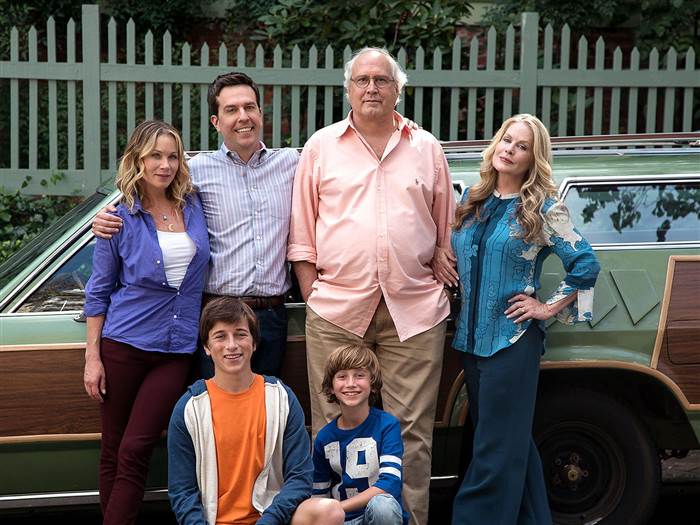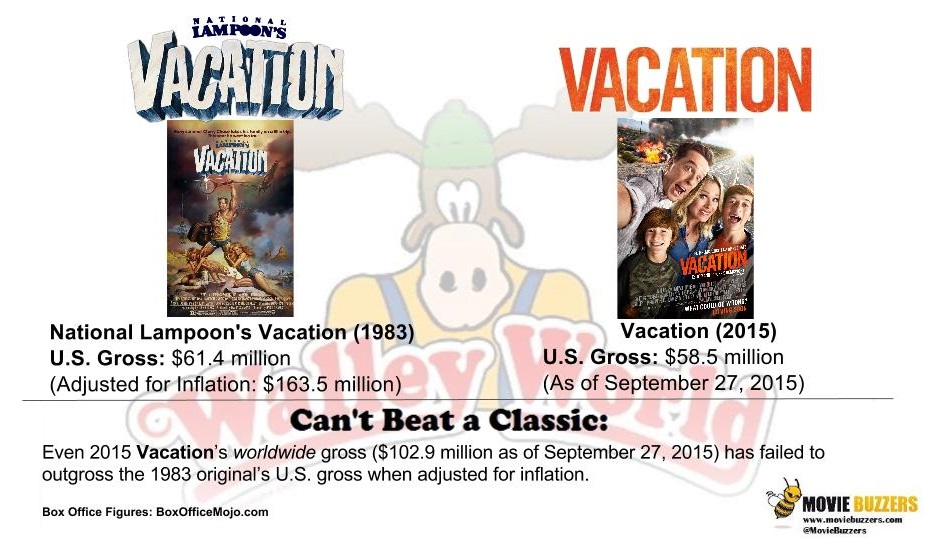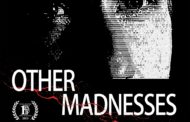 Despite a huge promotional push (including seemingly endless airings of the Infiniti QX60 “Holiday Road” commercial), this summer’s sequel/reboot/remake/reimagining/whatever you want to call it Vacation has failed to outgross the original 1983 movie at the U.S. box office after two months of release: $61.4 million for the original versus $58.5 million for the latest entry in the “franchise,” eighteen years after the last theatrically-released sequel, Vegas Vacation.
Despite a huge promotional push (including seemingly endless airings of the Infiniti QX60 “Holiday Road” commercial), this summer’s sequel/reboot/remake/reimagining/whatever you want to call it Vacation has failed to outgross the original 1983 movie at the U.S. box office after two months of release: $61.4 million for the original versus $58.5 million for the latest entry in the “franchise,” eighteen years after the last theatrically-released sequel, Vegas Vacation.
Even if Vacation gets a (very unlikely) late push and manages to surpass the original’s gross, the numbers aren’t even close when you get to the details: Keep in mind that National Lampoon’s Vacation was in theaters when the average movie ticket price was $3.15 compared to today’s estimated $8.39 (via BoxOfficeMojo.com). Adjusted for inflation, National Lampoon’s Vacation beats 2015’s Vacation quite handedly with a $163.5 million adjusted gross. In fact, that adjusted gross even blows away the worldwide box office gross of 2015’s Vacation.
Considering it was reported to have a $31 million budget, the 2015 version should still be profitable in the long run. But not surpassing the domestic grosses of a 32 year old movie has to be disappointing for New Line because it’s probably not enough to sustain additional Vacation sequels.
The new Vacation received much poorer reviews than the original, which is an acknowledged comedy classic. It seems that audiences just weren’t particularly interested in a continuation of a long-dormant comedy film series. The news doesn’t bode well for other upcoming remakes/reboots of comedy classics, like Paul Feig‘s Ghostbusters (which incidentally also stars Chris Hemsworth, who appears in Vacation), though the huge success of Jurassic World proves that audiences will flock to long-delayed reboots/sequels of other types of genres.
So where did the team behind Vacation go wrong, and what can studios learn from the failure? Share your take on the numbers with us in the comments.


















Recent Comments